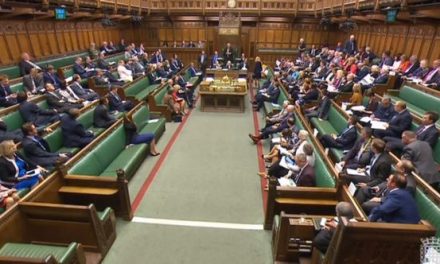Yesterday, the Secretary of State for the Home Department made a statement in the House of Commons on European Justice and Home Affairs Powers. Mrs Theresa May announced that “the Government’s current thinking is that we will opt out of all pre-Lisbon police and criminal justice measures and then negotiate with the Commission and other member states to opt back into those individual measures that it is in our national interest to rejoin.”
The Secretary of State pointed out “discussions are ongoing within the Government and therefore no formal notification will be given to the Council until we have reached agreement on the measures that we wish to opt back into.”
We should congratulate the Government for deciding to exercise the block opt out, however, this is not enough. It is important to note that the Coalition Government has already opted into a considerable number of legislation in this area.
It is important to stress that the block opt-out just applies to EU’s laws in the field of police and judicial cooperation in criminal matters adopted before the Lisbon Treaty and that have not been amended since this Treaty has entered into force. The former third pillar acts, which have been amended, repealed or replaced by new legislative measures, as well as new EU police and criminal law measures, proposed after the entry into force of the Lisbon Treaty are not included in the block opt-out.
It is important to note that the UK has already opted in to several proposals replacing third pillar acts adopted before the Lisbon Treaty as well as to new criminal law measures put forward after the entry into force of the Lisbon Treaty. Consequently, the ECJ still has jurisdiction over acts adopted in the areas of police cooperation and judicial cooperation for criminal matters transposed by the UK, even if the Government invokes the block opt out. The Court is fully competent to interpret and review the legality of acts adopted in the areas of police cooperation and judicial cooperation for criminal matters and the Commission has powers to launch infringement proceedings.
The ECJ is very likely to jeopardize Britain’s common law traditions. The UK Courts would be bound by the ECJ rulings and interpretations of Union law in this sensitive area. The ECJ has been interfering in member states legal systems, overriding national rules, and it is important to stress that it has been the motor behind greater EU integration.
There has been a continuous process of Europeanization on criminal law and criminal procedure. Consequently, Brussels is substantially affecting the UK justice and criminal law system. The power to determine criminal liability and to impose criminal penalties is a sovereign power, which should be retained by the UK. It is therefore essential that in 2014 the Government decide to opt out from all third pillar measures adopted before the Lisbon Treaty and which have not subsequently been amended or repealed. However, this would not be enough as in order the protect British national interest the Government should stop opting in to these measures and repatriate all the powers which are not covered by the block opt out. This is a policy area that must be decided by Parliament in Westminster not by Brussels. The government can secure access to police and judicial co-operation in criminal matters without having to be absorbed by the EU and subject to the ECJ jurisdiction. The UK must retain control over justice and home affairs.
The Government must renegotiate all the EU Treaties and the UK relationship with the EU. The Government must, therefore, call for a referendum, and, in the meantime, insist on appropriate legislation in line with the Supremacy of Parliament and apply where necessary the formula-notwithstanding the European Communities Act 1972.


Such is the feeling by many British people at the moment Mr Cash, and for the people ever to believe any British Government ever again-and time is running out for them-the British Government should make the decision to take this United Kingdom and Northern Ireland out of the EU Themselves. The Government need to make that decision themselves-and soon- and without a referendum. It is clear from the way the EU GOVERNMENT is going we cannot afford in any way especially financially, to remain in the European Union which is heading towards a “state of” Union.
The British Conservative Government before 1972 didn’t have the decency to ask the people if they wanted to join the then EEC, and lies, quite deliberate lies by a Prime Minister of this Country before the 1975 referendum on whether the people wanted to remain in the EU, in which they were told, “there would be no loss of essential Sovereignty”.
The people found out many years after, that was not true and was indeed a deliberate lie, and addmitted many years after on TV, that was indeed so. Proof of that is in a recent letter by the European Commission’s top legal Service, which states in one paragraph that, “Union Law prevails over national law, including national Constitutional law”. There is no way a British Government knowing THAT, can remain in such an Organisation, especially as their true, faithful, loyal sworn Oaths of Allegiance are to the British Crown.